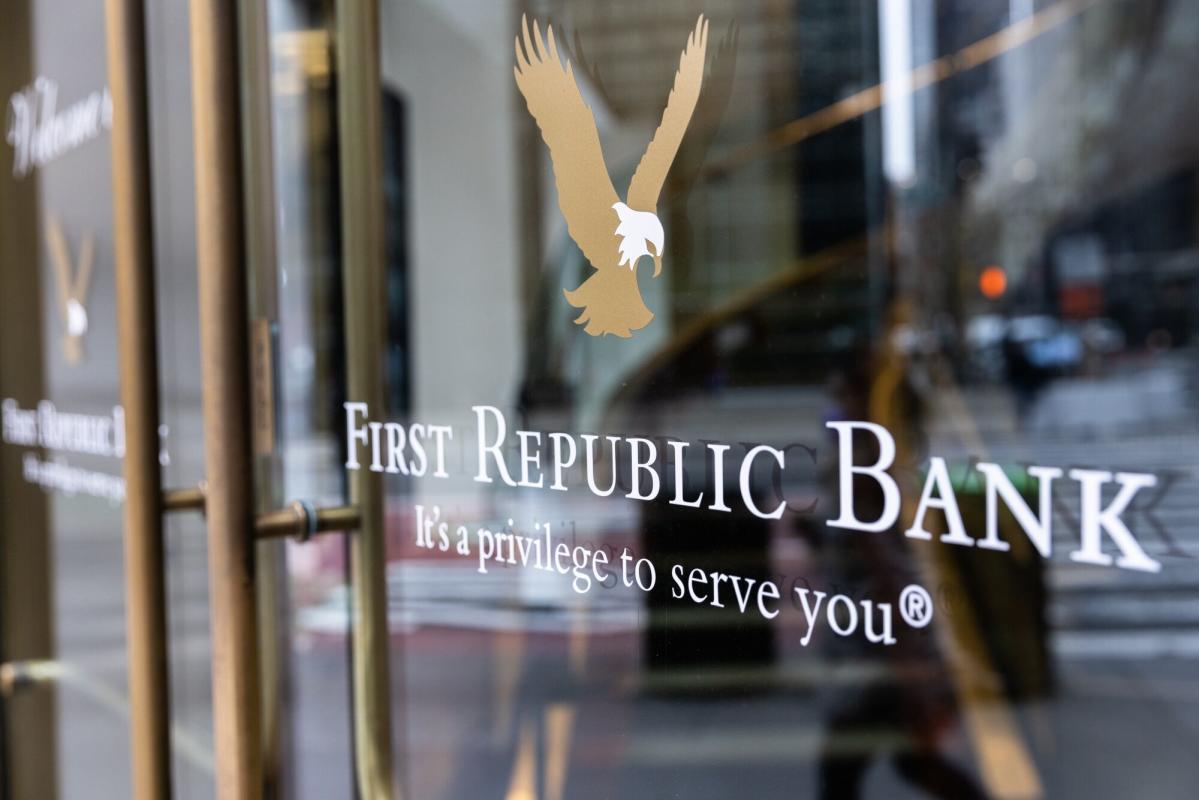(Bloomberg) — First Republic Bank said it’s weighing strategic options and seeking to shrink its balance sheet after deposits plummeted more than expected in the first three months of the year.
Most Read from Bloomberg
Deposits sank to $104.5 billion as of March 31, down 41% from the end of 2022, even after the country’s largest lenders parked $30 billion of their own cash with the San Francisco-based bank in an effort to shore up its finances. That compares with the $137 billion analysts in a Bloomberg survey had forecast.
In response to the “unprecedented” outflows of deposits, the company said it plans to cut its workforce by as much as 25% and that it’s weighing strategic options as it works to reinforce its capital position.
Still, such outflows have slowed in recent weeks, according to First Republic. Between the end of March and April 21, deposits slipped just 1.7%, meaning customer activity has largely been stable, the company said.
“With the stabilization of our deposit base and the strength of our credit quality and capital position, we continue to take steps to strengthen our business,” Chief Executive Officer Mike Roffler and Chairman Jim Herbert said in the statement.
The results are the first fulsome update from First Republic since investors pulled back from the stock in the midst of a crisis that engulfed regional lenders nationwide last month.
The turmoil started with the collapse of SVB Financial Group’s Silicon Valley Bank, which fell into government receivership after a sale of available-for-sale securities spooked depositors in the venture capital community. The move put a spotlight on banks sitting on large piles of unrealized losses on their balance sheets that might have to take similar action if faced with excessive withdrawals.
Indeed, First Republic ended last year with almost $27 billion in markdowns on loans and a bevy of unrealized losses on Treasuries and other long-dated bonds on the company’s balance sheet. That was far greater than the roughly $13 billion in tangible common equity it had at the time.
At the height of the crisis in March, 11 of the country’s largest banks banded together to deposit $30 billion of their own cash into First Republic. The move was meant to shore up confidence in the beleaguered lender.
Revenue for the first quarter slumped 13% from a year earlier to $1.21 billion, hurt by a 19% drop in net interest income. That compares with the $1.1 billion average of analyst estimates compiled by Bloomberg.
Operating expenses, meanwhile, unexpectedly dropped, falling 1.6% to $852 million. Net income for the period slumped 33% to $269 million, beating the $171 million average of analysts’ estimates compiled by Bloomberg.
First Republic shares fell 16% at 4:38 p.m. in late New York trading. The stock has cratered 87% this year, compared with the 3.3% decline for the S&P 500 Financials Index.
The company has since been working with advisers to raise money from banks or private equity firms, and Bloomberg News has previously reported that executives have also considered a sale of the entire bank. The large unrealized losses — which would have to be crystallized in most deals — have caused some buyers to balk at the prospect, people with knowledge of the matter have said.
(Updates with earnings details, company comment starting in third paragraph.)
Most Read from Bloomberg Businessweek
©2023 Bloomberg L.P.




